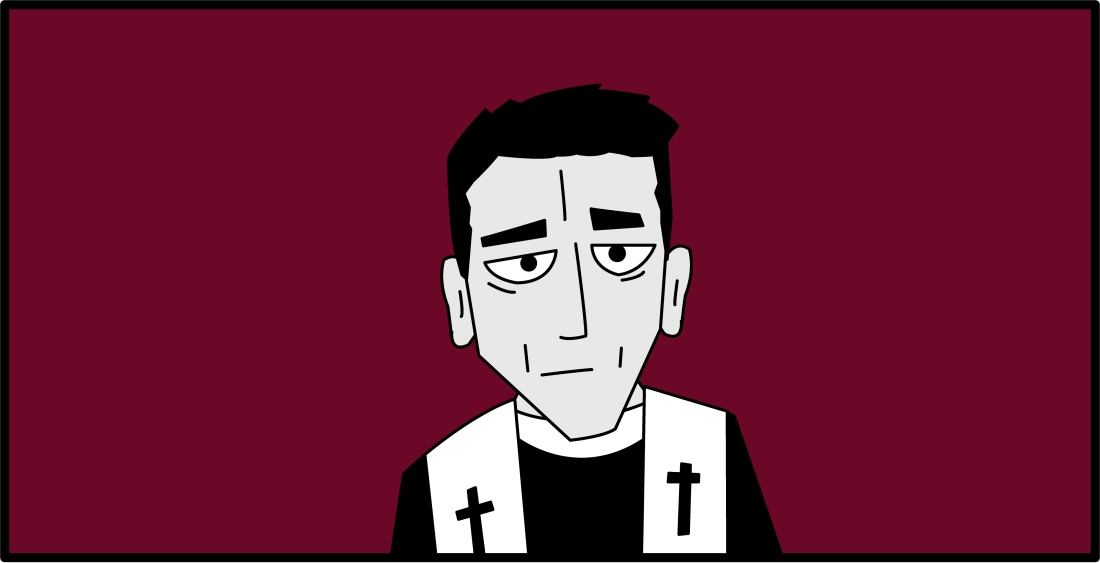
Words & Illustrations by Mark Holland
The First Reformed of the title is the name of a church in up-state New York that had historical importance as a part of an underground railroad that protected slaves in the mid-19th century. The church is now an antique and serves more purpose as a tourist attraction with a miniscule congregation, a broken organ and a tentative pastor. The film centres on the pastor, played with despondent vigour in a career-best performance from Ethan Hawke. He is a pious and strongly disciplined man who spends his evenings isolated in his barren apartment, drinking heavily and taking down his thoughts in a gloomy journal. He is a man without hope, questioning his faith and the shaky role that religion plays in a profit-oriented society.
His scepticisms grow following a meeting with an environmental fundamentalist, this occurs early on in a brilliant scene in which the pair debate the idea of bringing a child into a world that mankind has forsaken. The meeting evokes something in the troubled reverend that rocks his core beliefs and ultimately gives him a purpose. His small church is owned by a massive religious conglomerate, which is backed by a rich millionaire whose company is one of the state’s top polluters. This deeply troubles him and he starts to become increasingly disillusioned with his church and the trivial role he plays within its organisation. Watching the internal struggle on Hawke’s face as he wrestles with these thoughts is what makes the first half of the film so engaging. The story of a lonely man becoming increasingly lost in a world he despises is a favourite of director, Paul Schrader’s and it draws obvious comparisons to his screenplay for Taxi Driver.
First Reformed is a film that asks big questions and deals with big, weighty themes which can be quite intimidating to a casual viewer. Schrader tackles the issues of religion, despair, morality, climate change and capitalism head on and does so with a hefty sense of aggression. For the most part, it doesn’t come across as too preachy and leaves most of its bigger questions unanswered but Hawke’s performance aside, the film tends to lack subtlety and goes about addressing these issues in quite a heavy-handed way. It works best when it plays out as a character study; there are several pretty out-there surreal segments that aim to achieve some sort of existential transcendence but these moments do tend to fall a bit flat.
This is especially true of the final act; the introduction of a certain device the reverend comes across towards the end tips the film into absurdity and towards a conclusion that feels contrived. Even if you’re not entirely on board with the more stylised stuff, you go along with it due to the strength of the performances and the audacity of what Schrader is aiming to achieve. First Reformed is an incredibly ambitious film, Schrader has a lot he wants to say and for the most part he achieves it, but it’s Hawke’s incredibly understated performance that holds everything together.
